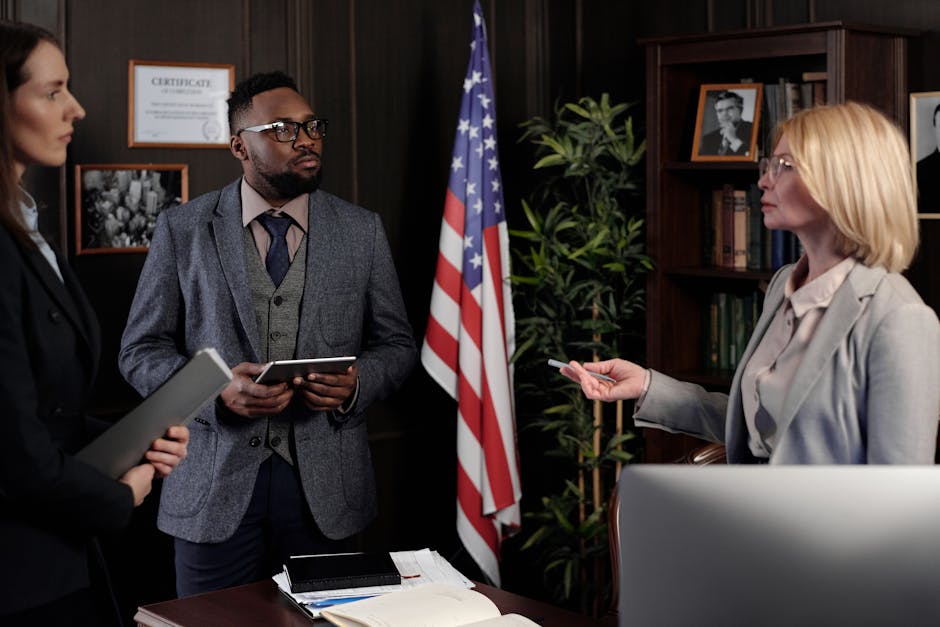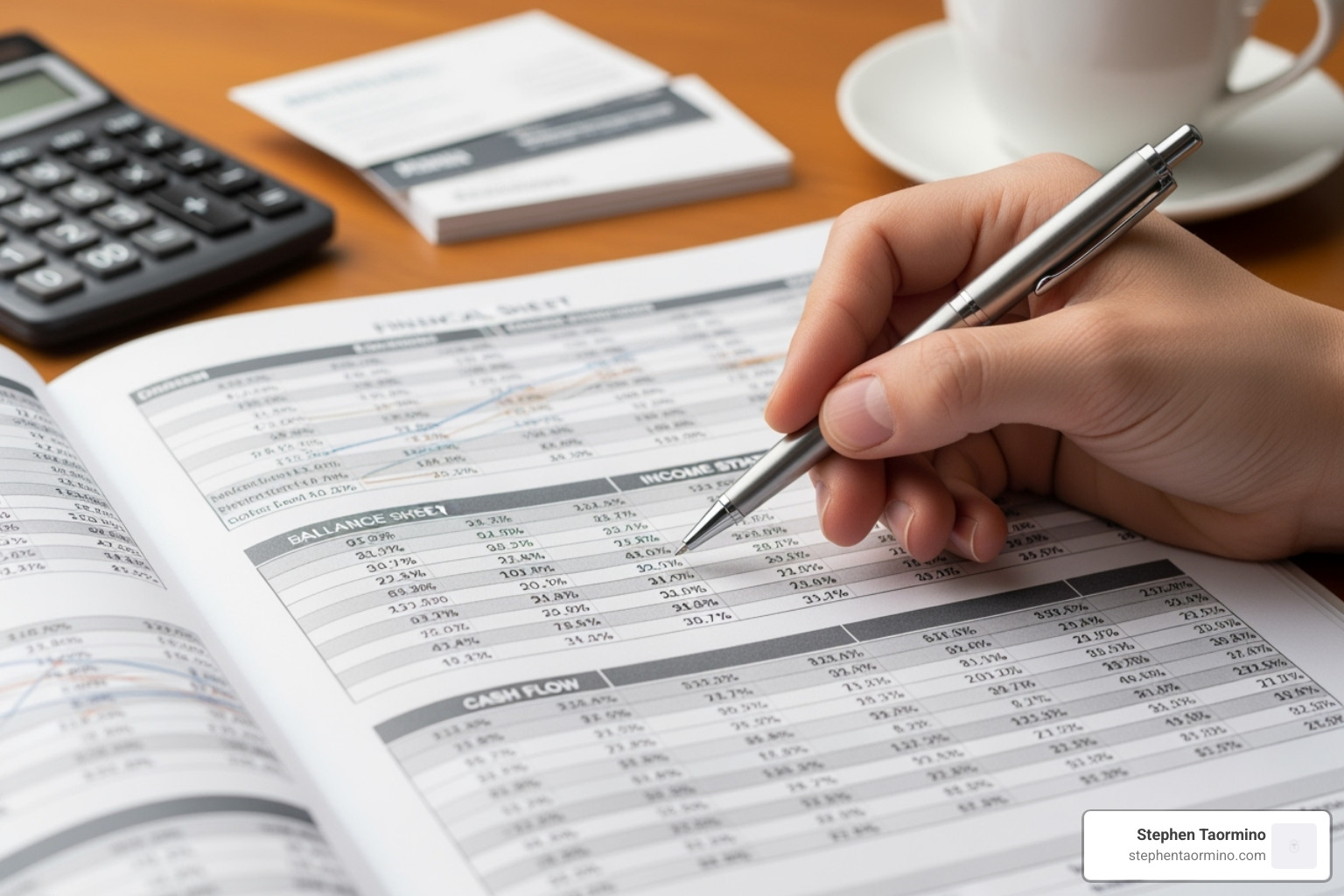Marketing Expert Witness: 5 Easy Steps to Win
Why a Marketing Expert Witness is Essential for Legal Success
A marketing expert witness is a professional who provides specialized testimony in legal cases involving advertising, brand disputes, and consumer behavior. They are essential for translating complex marketing concepts into clear, understandable evidence that helps judges and juries make informed decisions. Their key roles include providing expert testimony, analyzing consumer behavior, calculating damages, and preparing legally admissible reports.
As business disputes over advertising claims and digital practices become more common, the need for marketing expertise in the legal field has grown significantly. Without an expert, complex marketing issues can be misunderstood, potentially jeopardizing a case. This guide provides five straightforward steps to hiring a credible marketing expert witness who can deliver compelling evidence for your case.

I’m Steve Taormino, and I’ve served as an expert witness for the Maryland Attorney General’s office on matters of digital reputation and SEO. With over 25 years in marketing psychology and strategic communications, I specialize in making the technical complexities of modern marketing clear and compelling in legal proceedings. If you’d like to learn more about my professional journey, visit the about page to see how my experience can support your legal strategy.
Understanding the Role and Value of a Marketing Expert Witness
Before starting the hiring process, understand what a marketing expert witness does and the value they bring. They act as a bridge between the complex world of marketing and the courtroom, translating industry expertise into language that judges and juries can comprehend.
What is a Marketing Expert Witness?
A marketing expert witness is a specialist who explains complex marketing concepts to non-experts in a legal setting. They provide objective analysis grounded in evidence and industry standards, not just opinions. When a case hinges on issues like consumer confusion or deceptive advertising, an expert can break down the psychology behind consumer behavior and explain how marketing strategies influence purchasing decisions. Their role extends beyond testimony to include in-depth case analysis, helping legal teams steer the marketing landscape with an evidence-based perspective.
For more insight into how marketing expertise translates into compelling presentations, check out our expert speaking services.
Common Legal Cases Requiring Marketing Expertise
Marketing knowledge is critical in many legal disputes. The most common cases include:
- False Advertising: Experts dissect ad campaigns to determine if claims are misleading and how they impact consumers.
- Trademark Infringement & Brand Confusion: They analyze whether consumers are likely to confuse one brand with another due to similar branding, often using consumer surveys to measure the impact on brand value.
- Lanham Act Violations: This federal law covers trademark issues, false advertising, and unfair competition, frequently requiring marketing testimony.
- Digital Marketing Disputes: This modern category includes everything from SEO manipulation and misleading online reviews to unethical social media advertising.
- Class Action Lawsuits & Franchise Disputes: These cases often involve marketing practices that allegedly deceived a large group of consumers or misrepresented business opportunities.
A notable example is a case against an energy drink company for deceptive advertising, where experts analyzed health claims and their impact on consumers.
The Strategic Advantages They Bring to Your Case
Hiring a marketing expert witness offers significant strategic advantages. Their presence lends case credibility, as judges and juries are more likely to trust arguments backed by a professional with proven experience. They provide precise damage calculations, quantifying lost revenue or diminished brand value in a way that stands up in court.
Their insights into consumer perception, often supported by sophisticated research, can turn abstract concepts into tangible evidence. By involving an expert early in case strategy development, you can identify strengths and weaknesses in your arguments and shape a more effective approach. They also excel at explaining technical data from website analytics or ad campaigns in simple terms, ensuring crucial evidence is understood. This preparation helps anticipate counterarguments and often leads to more favorable outcomes, whether in court or during settlement negotiations.
Step 1: Identifying Your Case’s Specific Marketing Needs
Before searching for an expert, you must first define what you need. This involves pinpointing the exact marketing specialization relevant to your case and outlining the expert’s expected contributions.

Pinpointing the Area of Marketing Expertise
Marketing is a broad field, so matching the right specialization to your case is key. You wouldn’t hire a generalist for a highly specific dispute. Key areas of expertise include:
- Digital Marketing: For cases involving SEO, PPC advertising, and online analytics.
- Social Media Marketing: For disputes related to online reputation, influencer campaigns, or misleading social media content.
- Branding and Brand Management: For trademark infringement, brand dilution, and disputes over brand messaging.
- Consumer Behavior and Psychology: To prove consumer confusion, deceptive practices, or the impact of misleading claims.
- Market Research and Surveys: To provide legally sound data on consumer perception or likelihood of confusion.
- Advertising Claims and Substantiation: To assess whether advertising claims are misleading or lack proper scientific backing.
- Intellectual Property Marketing: To assess market impact in trademark, copyright, or trade dress disputes.
- Pharmaceutical Marketing: For cases involving drug promotion regulations and compliance in this highly regulated field.
Narrowing down the specific domain helps you target your search for a marketing expert witness with the precise knowledge required.
Defining the Scope of Work
Once you know the expertise you need, map out the expert’s expected tasks. This ensures alignment and prevents misunderstandings. A typical scope of work includes:
- Case Analysis and Evidence Review: The expert’s initial deep dive into case documents, marketing campaigns, and other evidence.
- Expert Report: A formal written document detailing their findings, methodologies, and conclusions, which must meet strict legal standards.
- Deposition and Trial Testimony: Presenting and defending their opinions under oath, first to opposing counsel and then in front of a judge and jury.
- Consulting Resource: A non-testifying role to help your legal team understand complex issues and develop stronger arguments.
- Damage Assessment: Quantifying financial losses, such as lost profits or brand devaluation.
- Rebuttal Reports: Critiquing the work of opposing experts to highlight weaknesses in their analysis.
Clearly defining these expectations in an engagement letter ensures the expert’s efforts align with your legal strategy.
Step 2: Finding and Vetting Potential Candidates
With your needs defined, the search for the right marketing expert witness begins. You need someone who fits your technical requirements, case strategy, and courtroom dynamics.
Where to Find Qualified Experts
Knowing where to look can streamline your search. Good sources include:
- Professional Networks and Attorney Referrals: Colleagues and other lawyers are often the best source for recommendations of trusted experts.
- Academic Institutions: University professors in marketing or business can bring academic rigor and research credentials.
- Industry Associations: Organizations like the American Marketing Association can connect you with seasoned professionals.
- Legal Publications and Expert Directories: Online databases allow you to filter candidates by expertise, location, and testimony history.
- Specialized Consulting Firms: These firms maintain rosters of vetted experts for litigation support.
Start your search early, as the best experts are often in high demand.
Key Qualifications for a Top-Tier Marketing Expert Witness

Not every marketer is an effective expert witness. The courtroom demands a unique blend of expertise, communication skills, and composure. Look for:
- Credentials and Advanced Degrees: An MBA, PhD, or relevant industry certifications demonstrate a strong foundation.
- Extensive Industry Experience: Look for experts who have held senior leadership roles and have practical, real-world experience.
- Specialized Knowledge: Their expertise should align precisely with your case’s needs, whether it’s SEO or consumer psychology.
- Testimony History: Experience with depositions and court testimony is crucial for maintaining composure under pressure.
- Communication Skills: The ability to explain complex topics in simple, compelling terms is non-negotiable.
- Objectivity and Impartiality: True experts base their opinions on evidence, not on who is paying them.
The Vetting Process: Questions to Ask
The interview process is your chance to assess qualifications and fit. Key questions to ask include:
- Methodology: “What is your methodology for analyzing [the specific issue in your case]?” A strong expert will outline a clear, defensible approach.
- Prior Testimony Experience: Request a list of past cases to assess their relevant experience and check for conflicts.
- Daubert/Frye Challenges: “Have you ever been challenged under these admissibility standards?” Successful navigation of these challenges is a good sign.
- Fee Structure: Understand their hourly rates, retainer requirements, and any additional costs. Rates for a marketing expert witness typically range from $200 to over $450 per hour.
- Availability: Ensure they can commit to your case’s timeline.
- Conflict Check: A thorough check is essential to ensure their objectivity is not compromised.
Step 3: The Engagement Process and Fee Structures
After identifying your ideal marketing expert witness, the next step is to formalize the relationship. This requires a clear engagement process and a transparent understanding of the financial commitment.
From Initial Contact to Engagement Letter
The path from the first call to a signed contract should be structured to protect both parties. The process generally includes:
- Initial Consultation: A brief, often complimentary call to discuss the case and assess fit.
- Conflict Check: The expert verifies they have no conflicts of interest with any party involved.
- CV Review: You receive their detailed curriculum vitae to review their qualifications and testimony history.
- Scope Discussion: You and the expert define the specific tasks, deliverables, and timelines.
- Formal Engagement Letter: A binding document outlining responsibilities, timelines, and the fee structure.
- Retainer Agreement: Many experts require an upfront retainer fee, which is billed against as work is completed.
This process ensures a professional and transparent engagement from the start.
Understanding Typical Fees and Retainers

Understanding the fee structure helps you budget effectively. While the investment can be substantial, a good expert often provides a strong return.
- Hourly Rates: This is the most common billing method. Rates for a marketing expert witness typically range from $200 to over $450 per hour, with top-tier experts commanding more. This rate usually applies to case review, report preparation, and meetings.
- Deposition and Court Testimony Fees: These activities often have higher hourly rates and may require half-day or full-day minimum charges.
- Retainer Fees: An upfront payment to secure the expert’s services, which can range from a few thousand to tens of thousands of dollars depending on the case’s scope.
- Additional Expenses: Travel, accommodation, and costs for specialized research or data are typically billed separately.
Always request a detailed fee schedule upfront to manage expectations and avoid surprises. A strong expert can lead to favorable settlements or strengthen your position in court, making the cost a worthwhile investment.
Step 4: Collaborating for Maximum Impact
Hiring a marketing expert witness is just the first step. The real value comes from integrating them into your legal team as a strategic partner who can translate complex industry concepts into courtroom gold.
Integrating the Expert into Your Case Strategy
Successful legal teams collaborate with their experts from the beginning. Early involvement is crucial, as it allows them to understand the full context of the case and contribute to strategic decisions. During the findy phase, their trained eye can identify crucial documents or data patterns that others might miss.
When analyzing evidence, an expert provides context based on industry practices and consumer behavior, revealing the story behind the data. They can also offer ongoing strategic guidance, helping you anticipate opposing arguments and refine your legal narrative. Maintain open communication and keep your expert updated on all case developments. While their opinions must remain objective, understanding your legal goals helps them focus their analysis on the most impactful areas.
Preparing Your Marketing Expert Witness for Testimony
Even the most brilliant expert needs thorough preparation for the courtroom. Success depends on a clear, confident presentation.
- Provide Comprehensive Materials: Give your expert all relevant case materials with ample time for review.
- Conduct Mock Examinations: Practice sessions are the best way to refine explanations, build confidence, and prepare for aggressive cross-examination.
- Simplify Complex Concepts: Work with your expert to translate technical jargon into simple language and analogies that a jury can understand.
- Ensure a Robust Report: The expert’s report is the foundation of their testimony and must be clear, logical, and able to withstand legal scrutiny under standards like Daubert.
- Emphasize Objectivity: Remind your expert that their role is to educate the court, not to be an advocate. Credibility is key.
- Discuss Courtroom Demeanor: A professional appearance and confident communication style improve how their testimony is perceived.
Step 5: Leveraging the Expert’s Report and Testimony
The culmination of your marketing expert witness‘s work is their report and testimony. These are powerful assets that can sway settlement negotiations or a jury’s decision.
The Expert Report: A Cornerstone of Your Case
An expert report is a strategic tool that forms the foundation of your argument. It weaves market research, consumer data, and campaign analysis into a comprehensive narrative. A powerful report presents clear and concise conclusions that directly address the legal questions at hand, such as the likelihood of consumer confusion in a trademark case. Every opinion must be backed by rock-solid supporting evidence, including data, charts, and references to industry standards.
A well-crafted report can be a powerful settlement tool. When the opposing side sees a thorough, objective analysis from a credible expert, it can significantly alter the negotiation dynamic. If the case goes to trial, the report serves as a trial exhibit and the foundation for the expert’s testimony, ensuring their statements are consistent and well-supported.
Real-World Impact: Case Examples
The impact of a marketing expert witness is clear in real-world legal outcomes.
-
Consumer Confusion and Trademark Disputes: In a famous trademark dispute between two major smartphone manufacturers, marketing experts used consumer surveys to provide hard data on whether consumers confused the devices based on design and marketing. This evidence was crucial in helping the court understand the real-world impact of design similarities.
-
Deceptive Practices and False Advertising: In cases involving misleading claims, experts analyze ads and study how target audiences interpret them. They can survey consumers to measure deception and work with financial analysts to calculate damages.
-
Brand Dilution and Valuation: When a brand’s value is harmed, experts use sophisticated models to quantify the economic damage by analyzing market share, brand perception, and lost earning potential.
-
Digital Marketing Disputes: In cases of online defamation or unethical SEO, experts analyze website traffic, search rankings, and social media data to provide evidence of unfair practices and explain how these actions violate industry standards.
These examples show that marketing experts provide the data-driven insights needed to clarify complex issues, establish causation, and quantify damages.
Conclusion
Hiring the right marketing expert witness is a critical investment in your case’s success. They bridge the gap between complex marketing strategies and the clear legal arguments needed to persuade judges and juries. In a legal landscape filled with sophisticated digital and psychological marketing tactics, expert guidance is no longer a luxury—it’s a necessity.
By following these five steps—identifying needs, vetting candidates, formalizing the engagement, collaborating effectively, and leveraging their testimony—you can secure an expert who provides the clarity, credibility, and strategic insight needed to win. They transform abstract concepts like consumer confusion and brand dilution into concrete evidence, quantifying damages and explaining industry standards in a way that can make the difference between a favorable settlement and a costly loss.
An expert like Stephen Taormino, with deep knowledge in marketing psychology and business development, can be invaluable in demonstrating how marketing actions influence consumer behavior. His ability to combine technical expertise with compelling communication ensures that complex marketing concepts are persuasively presented in legal proceedings.
The investment in a qualified marketing expert witness often pays for itself many times over by leading to stronger legal positions and more favorable outcomes.
To build a more persuasive case by understanding the psychological drivers behind consumer decisions, explore our insights on Behavioral Economics & Marketing Techniques.
